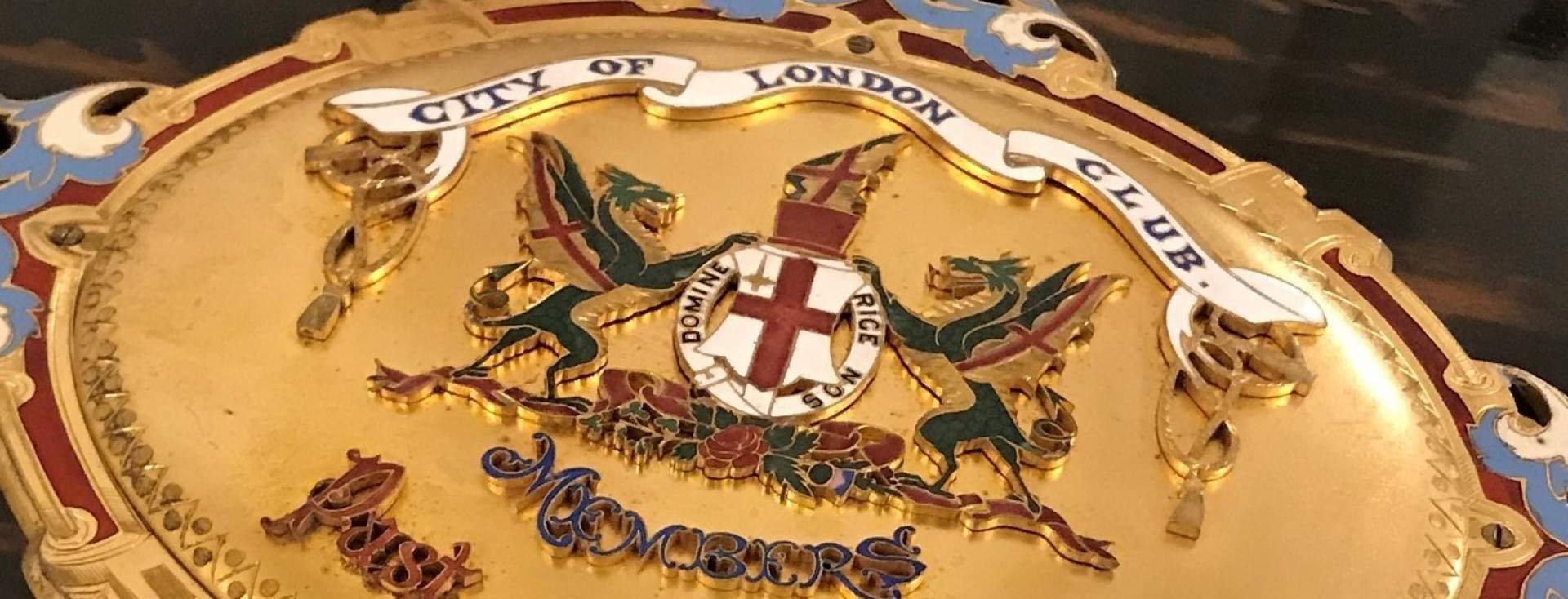History and Tradition
The City of London Club was founded in 1832 by a group of prominent bankers, merchants and ship owners, who formed a committee, on 29th February of that year, under the chairmanship of Mr John Masterman, then Member of Parliament for the City.
The Committee held their first meetings at Members’ offices and at the George and Vulture Tavern (later better known as Thomas’s Chop House) in St Michael’s Alley. At a meeting of the Committee held on 18th July 1832, it was decided to acquire from H.M. Commissioners of Excise the site on which the Club now stands, which was then vacant; and, as a result of arbitration, the lease was signed on 4th September 1832 with Lord Duncannon and others on behalf of H.M. Commissioners of Excise, at a rental of £330 per annum exclusive of Fountain Court. From 1853 onwards, this rental was paid to the Alliance Assurance Company, who had apparently then acquired the site from H.M. Commissioners of Excise.
The building of the Club-house was commenced in about January 1833 and finished early in 1834, being actually opened to members on 1st May of the latter year. The original cost of the building, fittings and furniture was £20,301, but further expenditure of about £1,400 was incurred in the following year.
Fountain Court (the open space between the Club-house and the National Westminster Bank), was sold in 1855 and the lease of it, until 1932, was acquired by the Club from the Oriental Bank Corporation in 1863, at a rental of £150 per annum, later paid to the National Provincial Bank; so that the total annual rent thence forward paid by the Club, for the original site and Fountain Court, became £480.
The freehold of the actual site of the Club-house was bought by the club for £25,000 from the Alliance Assurance Company on 24th June 1889, the then Lord Revelstoke being Chairman of the Club when negotiations were initiated; and Sir R N Fowler Bt MP, when they were completed.
Please click here to read about the history of the club from an article printed in Country Life in 1980.
In 1970, following previous negotiations, a contract was signed with National Westminster Bank Limited, whereby the Club would move to alternative premises provided by the Bank, who would then redevelop the Club’s original site as part of an overall scheme to create new head office premises. In the event, the Bank were unable to obtain Listed Building Consent for the redevelopment of the Club’s site and a new agreement was reached, whereby the Bank undertook to renovate the Club’s premises in return for the termination of the contract to provide a new Club-house. These renovations were completed in May 1980, although the Club returned to partial occupation of the Club-house, opening again for the admission of the Members at the beginning of January that year.
The number of original members was 600, the Committee having powers to increase this number; in 1839 there were 800 Members and that remained the limit until 1970 when the Committee took powers to raise it, by stages, to a maximum of 1,000. A further increase in 1980 raised the limit to 1,200. In 2011 this was increased to 1,400 and at the same time, the Members voted to offer membership to ladies as well. The original entrance fees and subscription were 25 guineas and 6 guineas respectively, with these fees being gradually increased during the intervening years to their present level.
Amongst the original Members of the Club in 1832, were two men whose names are landmarks in the history of this country, the Duke of Wellington and Sir Robert Peel, both of whom remained Members until they died in 1852 and 1850 respectively. Other original Members were the Marquess of Salisbury, father of the famous statesmen, also Lord Overstone, a great figure in the city of his time; and three of the Rothschild family, one of whom, Baron Nathaniel Meyer de Rothschild, was the founder of Rothschild House in London. The then partners of most of the leading banks and merchant firms were also original Members.
The Club is the oldest in the city of London and Members may well be proud of its traditions and associations. From its very inauguration it has had a recognised status of character and dignity, which we venture to think it still maintains.



